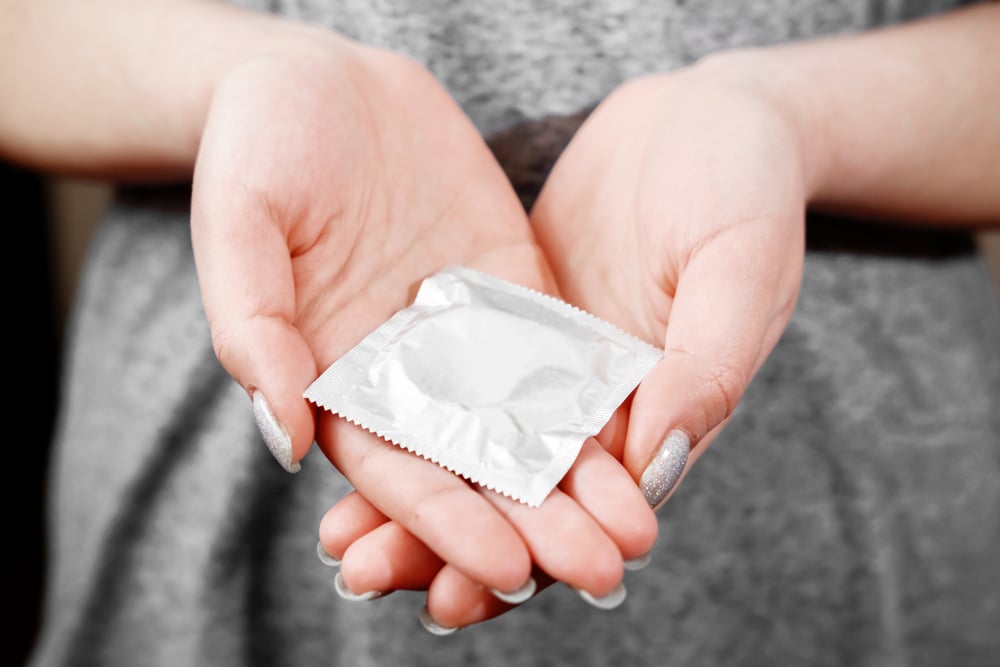As women approach menopause, declining levels of the hormone estrogen can lead to genitourinary syndrome of menopause (GSM). This is an umbrella term for the various changes that can occur in a woman’s genitals and urinary tract during menopause. Many of these changes are due to declining estrogen levels, which can cause atrophy (thinning) of the vaginal walls. This can lead to symptoms such as vaginal dryness, itching, burning, and pain with intercourse (dyspareunia) (1). Read about dyspareunia menopause below!
What Is Dyspareunia?
Dyspareunia is defined as persistent or recurrent pain with intercourse. It can affect both premenopausal and postmenopausal women, although it is more common in postmenopausal women. The pain can be either superficial (at the entrance to the vagina) or deep (with penetration). It can also be either constant or intermittent, and it may get worse with time (3).
There can be a psychological impact as well, leading to anxiety, depression, and a loss of sexual desire. The effect on relationships can be significant.
What Causes Dyspareunia?
There are a number of factors that can contribute to dyspareunia.
Lack Of Lubrication
In premenopausal women there is often a lack of lubrication. This can possibly be caused by inadequate foreplay, medications, certain medical conditions (such as Sjogren’s syndrome), or menopause.
Read More: The Sexual Response Cycle: Here’s What Happens To Your Body And Mind When You Have Sex
Vaginal Atrophy
In postmenopausal women the most common cause of this condition is vaginal atrophy, which is due to declining estrogen levels. Atrophy basically means that the vaginal tissue becomes thinner, drier, and less elastic. This can make intercourse painful. Other causes of dyspareunia in postmenopausal women include:
Lichen Sclerosus
This is a chronic skin condition that can affect any area of the body, but it is most common in the vulva (the external female genitalia). It can cause itching, burning, and pain.
Vulvodynia
This is a condition that causes chronic pain in the vulva. The exact cause is unknown, but it is thought to be due to changes in the nervous system.
Vaginismus
This is a condition that causes the muscles around the vagina to tighten involuntarily, making penetration very painful or even impossible. It can be caused by psychological factors such as fear of pain, memories of past trauma or abuse, or a general anxiety about sex.
It can also be the result of physical conditions such as vaginal dryness (due to hormonal changes or other reasons), infection, skin disorders, scarring from childbirth or surgery (2).
How Is Dyspareunia Treated?
The treatment for dyspareunia depends on the underlying cause. If the cause is vaginal atrophy, the treatment may include vaginal estrogen creams, tablets, or rings. These treatments can help to thicken the vaginal walls and increase lubrication. If the cause is another condition, such as endometriosis or pelvic floor muscle spasm, treatment should be focused on that condition. In some cases, psychotherapy may help.
When it comes to weight loss, progress is made by inches, not miles, so it’s much harder to track and a lot easier to give up. BetterMe app is your personal trainer, nutritionist and support system all in one. Start using our app to stay on track and hold yourself accountable!
How To Talk To Your Doctor About Dyspareunia
If you’re experiencing pain during sex, it’s important to talk to your doctor. It can be a difficult topic to discuss, but your doctor can help you figure out the cause of your pain and the best treatment.
Here are some tips on how to talk to your doctor about dyspareunia:
- Be specific about when the pain occurs.
- Note how long the pain lasts. Is it a dull ache or sharp pain?
- Describe the location of the pain.
- Keep track of anything that lessens or worsens the pain.
Your doctor will likely perform a pelvic exam to look for any external factors that could be causing the pain, such as an infection or inflammation. They may also order tests to check for vaginal dryness or other hormonal imbalances.
Read More: What Does Sexually Active Mean?
The Bottom Line
Dyspareunia can be a painful and frustrating condition. However, there are treatments available that can help. If you are experiencing pain with intercourse, talk to your doctor to find out what might be causing it and what treatment options are available.
DISCLAIMER:
This article is intended for general informational purposes only and does not address individual circumstances. It is not a substitute for professional advice or help and should not be relied on to make decisions of any kind. Any action you take upon the information presented in this article is strictly at your own risk and responsibility!
SOURCES:
- Dyspareunia in postmenopausal women: A critical review (2008, nih.gov)
- Pain with Penetration (n.d., menopause.org)
- Women’s Wellness: Painful sex after menopause (2018, mayoclinic.org)












